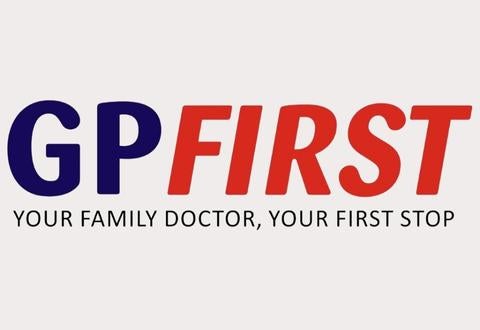Changi General Hospital will NEVER ask you to transfer money over a call. If in doubt, call the 24/7 ScamShield helpline at 1799, or visit the ScamShield website at www.scamshield.gov.sg.
Giving a voice to silent struggles
The journey for women battling addiction is complex and often silent. With an intricate understanding of these complexities, Changi General Hospital’s (CGH) Department of Psychological Medicine provides trusted care for women with addictions through the integration of gender-specific treatment with recovery programmes in the community.

A mother of two children aged two and five, Ms A suffered from alcohol use disorders and had been using alcohol for the past five years due to low moods and sleep difficulties after the delivery of her first child. She was unemployed and did not have much social support as her husband was emotionally abusive and she was not on good terms with her family and in-laws.
After being admitted to CGH following an episode of alcohol intoxication, Ms A talked to her care team about the suicidal thoughts she experienced following a huge fight with her husband. She subsequently received treatment from a multi-disciplinary team which included psychiatrists, doctors, addiction counsellors, psychologists, social workers and nurses. With Ms A’s input, a holistic and individualised plan which included alcohol detoxification, mental health treatment and outpatient rehabilitation was developed.
A year on, Ms A, who has been supported by CGH’s care team in her recovery journey, has managed to maintain sobriety. She works with a counsellor on her alcohol abstinence goal, and sees a psychiatrist and psychologist to manage her emotions and prevent relapses. She was also referred to a social worker who engaged her on community and support resources in the community. Ms A now attends support groups and family counselling, and her husband has also been counselled and educated on how to support her positively. They are now able to communicate more openly and understand each other better. With these treatments, Ms A is feeling emotionally more stable, can function better in her daily tasks, and is better able to manage her emotions in stressful situations.


Breaking the barriers to seeking treatment
Addiction disorders affect both men and women, albeit in different ways. They impact lives negatively and affected individuals find it very challenging to break out of addictions even if they wish to. This is because addictions hijack the reward pathway in the brain, and “trap” people in seeking the addictive drug or behaviour. While men traditionally have higher rates of addiction, the dynamics of addiction in women are heavily influenced by biological factors and societal expectations. Common addictions in Singaporean women include nicotine, alcohol, gaming and gambling. Women often progress faster in addiction due to biological and socio-economic factors.
Coping with stigma is a common barrier for anyone in addiction treatment and recovery, but it is particularly tough for women to break the stigma labelled on them. Women are generally more hesitant to seek help as cultural and societal norms often expect them to be selfless and caring in their roles as caregivers or mothers. Attempting to live up to these expectations may cause women to feel a sense of shame and guilt that potentially deters them from seeking treatment for their addiction.


Having a team of addiction and/or mental health professionals, who are equipped with the expertise to encourage patients to take personal responsibility of their health without blame or judgment, is helpful in developing a healthy connection and relationship with these women. “Rather than take the old ‘break them down and build them up’ approach, it is more crucial to motivate them by helping them feel connected and that they belong, instead of re-aggravating their guilt and shame,” says Clinical Assistant Professor Lim Chau Sian, Consultant, Department of Psychological Medicine, CGH.
In addition, research has shown that a gender-specific or gender-sensitive programme can be incredibly beneficial for women in treatment and aid their recovery journey. Such programmes include treatment topics such as managing dysfunctional relationships, assertive skills, stress management and healthy eating habits, as well as coping with trauma, hormonal concerns and emotions.

Reintegrating into the community
Integrating treatment services and recovery in community is crucial. Recovery programmes for women that are based in the community and cater to social and family needs will be more accessible to women. Part of the recovery plan should also include assisting them in building a positive and healthy recovery network in the community specifically for women, where they can address their emotional needs encountered in recovery; and being in a support group specially designed for women, where they can continue to receive positive support in the community.
By acknowledging the unique patterns, circumstances and challenges faced by women coping with addiction, we can pave the way for a more compassionate, tailored approach to addiction treatment.

Stay Healthy With
© 2025 SingHealth Group. All Rights Reserved.


















